Member Login
E-mail: ISTM@ISTM.org
Office hours: Monday - Friday, 9.00 - 17.00 EDT (UTC-04)
October 2010

President's Message

Alan Magill
Dear Friends and Colleagues:
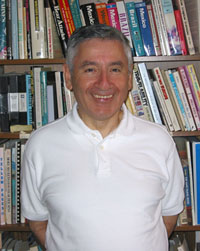
Karl Neumann
CISTM12 in May of 2011 will be a milestone for the Society as it marks the 20th Anniversary of the ISTM. In 1988 close to 500 travel medicine professionals gathered and decided to launch the first international society focused solely on travel medicine. ISTM was officially established during the next conference in 1991, now recognized as CISTM1. ISTM has now grown to over 2,500 members in 75 countries and is the largest organization of professionals dedicated to the advancement of the specialty of travel medicine. Our CISTMs are really outstanding opportunities that occur only every 2 years for all the world's travel medicine practitioners to come together to share experiences, enjoy a collegial environment, and do a bit of traveling themselves. You won't want to miss CISTM12 which will be held in Boston, Massachusetts on 8-12 May 2011.
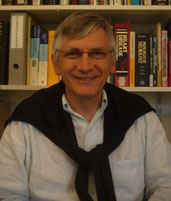
Christoph Hatz
There has never been a better time to be a member of the ISTM. I encourage you to watch your mail for the 2011 membership materials, and renew quickly. Thank you for the opportunity to serve the ISTM as President, and I look forward to continuing our work together as we strengthen and grow our specialty of travel medicine.
Cheers,
Alan Magill
Secretary-Treasurer's Report

David Freedman
As we approach the end of 2010, I want to give you an update on the current ISTM membership. After a 7.3% increase from 2008 to 2009, the 2010 membership number totals (as of October 1) are essentially the same as for 2009, at about 2,500. This is actually excellent news as most membership associations have seen significant declines, probably due to the economy. Of note is the continued strong loyalty of our existing members as demonstrated by no decline at all between the number of existing members renewing during 2010 as compared to 2009. This is especially gratifying. Usually we seen a slight decline membership renewals in non- CISTM years.
For 2010 we had budgeted and projected very conservatively for a consistent membership year. We are on track with this prediction, and will end the year with just over 2500 members. We may actually see a slight increase as the year ends and CISTM12 and CTH® registrations begin arriving.
The number of pharmacist members has been increasing each year. In 2006, less than one percent of our members were pharmacists. This number has increased to just around four percent in 2010. Another trend to note is that our membership is increasing in Latin America. While the overall membership numbers there are still relatively low, the numbers have doubled since 2008.
New members continue to join the ISTM, and account for between sixteen and twenty-four percent of our overall membership. In CISTM years our membership growth is more dramatic than in non-CISTM years. With the CISTM12 in Boston in May next year, as well as with the increased activities of our Professional and Interest Groups, we are working towards an increase in membership for next year.
Our membership surveys show that the most common reason people join ISTM is due to a colleague's recommendation. Thank you for continuing to recommend ISTM membership and activities to your colleagues, and helping to grow our society.
Best regards,
David Freedman
News from the ISTM Secretariat

Diane Nickolson
It has been a busy summer for ISTM committees, groups and task forces -- and consequently for the secretariat as well. We are preparing for a very busy 2011, and hope to see you at one or more of our ISTM activities.
Watch your mail for the 2011 membership renewal packet. Please read through the material. It will include your renewal forms, information about ISTM Groups, letters from ISTM officers, and information about ISTM programs and member benefits. Please renew your membership for 2011 if you have not already done so. The easiest method is to use a credit card on our secure membership renewal portal on the ISTM website.
2011 brings our biennial elections for the next ISTM President and the ISTM Executive Board. These positions will be vacated in June. The nominations committee is hard at work reviewing the nominations received and constructing the ballots. As in past years, the 2011 election will be held using internet balloting through the same outside specialized election company. Watch your email accounts in early January. All ISTM members in good standing will be emailed a link to your personalized ballot along with voting instructions. We will also include the candidates' bios and personal statements. If you do not receive your electronic ballot by 15 January, please let us know.
The ISTM Research and Awards Committee are now requesting applications for the 2011 ISTM Research Awards Competition. The award recipient will be announced at the CISTM12 in Boston. Consider your research projects and submit a proposal. Information and application forms may be found on the ISTM website.
The Committee has also activated the CISTM12 Travel Awards. We invite those of you who might need travel assistance (and who have submitted an abstract to the CISTM12) to apply. More information is available on the ISTM website.
As always, let us know if you have questions or comments about ISTM activities and programs. We are here to assist you and we look forward to continuing our work with you and with the ISTM as we enter the 20th year of its existence.
Thank you for all that you do to support the ISTM and the practice of travel medicine!
Kind regards,
Diane Nickolson, Executive Director
ISTM Lifelong Continuous Professional Development Program Task Force
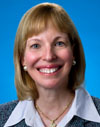
Phyllis Kozarsky
Trends in medical and paramedical fields have moved towards some type of formal program for continuous professional development, not necessarily imposing additional examinations, rather fostering and encouraging self-improvement through education, research and other activities. It is anticipated should such a program be considered it will not impact the current CTH® certificate holders; they would always maintain their certificate as earned.
The Chair of the Task Force as appointed by the ISTM President, Dr. Alan Magill, is Dr. Phyllis Kozarsky (USA). Dr. Kozarsky is uniquely qualified to lead such a Task Force as the founder of the CTH® exam and the Chair of the Examination Committee from 1999 to 2008. The Task Force membership takes into account appropriate geographic locations, professional associations, and past experience with the CTH® so as to represent fairly the ISTM membership. Task Force Members are:
Rebecca Acosta, Nurse, USA
Suni Boraston, MD, Canada
Ken Dardick, MD, USA (currently Chair of the CTH® Examination Committee)
Richard Dawood, MD, UK
Jeff Goad, Pharmacist, USA
Peter Leggat, MD, Australia
Gilles Poumerol, MD, WHO
Eli Schwartz, MD, Israel
Robert Steffen, MD, Switzerland
ISTM Travel Medicine Review and Update 2011
The ISTM Professional Education Committee is planning the next presentation of the popular Travel Medicine Review and Update Course to be held in Atlanta, Georgia, USA, on 18 to 20 March, 2011. Elizabeth Barnett, USA, has agreed to chair the course and is working on finalizing the course agenda and securing speakers.
Designed to be a comprehensive review of the practice of travel medicine, the curriculum will include the following topics:
- Immunizations
- Enteric infections
- Travelers' diarrhea
- Malaria and other vector-borne diseases
- Environmental exposures
- Travel clinic management issues
- Evaluating illnesses in returning travelers
The care of special groups such as pregnant women, pediatric travelers, immigrants, VFR travelers, diabetics, and immunocompromised hosts will also be discussed. The course is tailored to meet the needs of physicians, nurses, pharmacists and other healthcare professionals who provide medical care and advice to travelers, expatriates and migrants.
The course provides a review of the Body of Knowledge for the practice of travel medicine and may serve as a foundation to candidates beginning to prepare for the ISTM Certificate in Travel HealthTM (CTH®) Examination. The next CTH® Exam will be given on 8 May 2011, just prior to the opening of CISMT12 in Boston, Massachusetts, USA.
Participants will have ample opportunity to interact with the faculty and network with colleagues throughout the course. Please visit www.ISTM.org to register and to receive the latest information, including the course schedule and faculty as they are confirmed.
2011 ISTM Presidential and Executive Board Elections

Fiona Genasi
As Chair of the ISTM Nominating Committee for the 2011 Presidential and Executive Board elections, I am writing to invite you to consider nominating yourself for consideration by the Nominating Committee to be placed on the ballot.
For the 2011 election, the committee is seeking nominations for the office of President-Elect and two Counselor positions. If you know of someone who would be interested in serving on the ISTM Executive Board, please complete the nominations form found in the Member Services section of the website. Please note that the Committee will be accepting proposals for individuals to be placed on the ballot until 31 October 2010, and the Committee can only consider individuals who are in good standing with their ISTM membership and for whom a properly completed application form has been received.
Once the proposal process has closed, the Committee will meet to evaluate and vote on the potential candidate applications. Electronic ballots with the names, biographies, and statements of two nominees for each open position will go out to all members on 1 January 2011. Balloting will be open until 15 March 2011.
Please contact the ISTM secretariat office at ISTM@ISTM.org if you have any questions concerning the nominations process or difficulty opening the nominations form.
Thank you,
Fiona Genasi
President-Elect, ISTM
Chair, Nominating Committee
ISTM Leadership Council and Executive Board Meeting Highlights
June 2010
Jackson, Wyoming, USA
Each year the ISTM Leadership Council and Executive Board meets near the end of the ISTM fiscal year, which is 30 June. In order to minimize additional costs to the ISTM, the 2010 annual ISTM Leadership Council and Executive Board meetings were held in conjunction with the annual GeoSentinel® Site Directors meeting.
Alan Magill, the ISTM President, opened the meeting with a brief review of major activities for ISTM, noting that a number of key decisions were to be made during the meeting.
The agenda for the meeting included a report from each ISTM committee, group, activity and task force. The full Leadership Council met for a day and a half, addressing every issue and report. On the final day, the board went into executive session.
Highlights of the meeting reports:
Secretary-Treasurer
David Freedman reported on the current financial status of the organization, noting that recent gains are compensating for the losses in our invested reserves that were realized with the volatile market conditions in 2009. Dr. Freedman presented the most current ISTM budget, noting the most recent projection of a very slight surplus for the year ending 30 June 2010. He also conveyed that, as predicted, the ISTM membership revenue will not likely see any growth from 2009-2010.
Dr. Freedman reviewed the preliminary 2010-2011 budget, comprised of requests from all committee, groups and task forces, and developed by the Secretariat and Finance Committee.
Journal of Travel Medicine
Reports were given from Robert Steffen, Journal Editor-in-Chief and Elaine Musgrave of Wiley-Blackwell, the Journal Publisher. It was reported that the current impact factor rating is 1.503, a .011 increase over the prior year. Dr. Steffen reported an increase in the number of manuscripts submitted in 2009, and was pleased to note that the average time between submission and approval or notice of non-approval is now only 40 days.

Eric Caumes selected
next JTM Editor-in-Chief
During the June meeting, the Executive Board received and approved Dr. Magill's recommendation and nomination for Dr. Eric Caumes of France, to be the next Journal Editor in Chief.
RCISTM5 2012
The Leadership Council and Executive Board received two proposals for the RCISTM5 in 2012. Ms. Fiona Genasi, President-Elect and Chair of the RCISTM Selection Committee reviewed each proposal in depth, noting both were very strong, well-engineered and offered good options.
During the Executive Session, the Executive Board again reviewed the proposals and awarded the RCISTM5 to Singapore to be held in conjunction with the Asia Pacific Travel Medicine Society.
Interest and Professional Groups
Each of the newly developed Interest and Professional Groups of the ISTM gave reports and proposed charters for approval. Each reviewed the activities they have been conducting to date and reported on future plans and projects in development. Group reports included:
Nursing Professional Group, given by Gail Rosselot
Pharmacy Professional Group, given by Larry Goodyer
Destination Interest Group, given by Assunta Marcolongo
Migrant and Refugee Interest Group, given by Elizabeth Barnett
Psychological Health Interest Group, written report by Ted Lankester reviewed by Alan Magill onsite
Strategic discussions included:
New Volunteer Activity Structure Discussion
Dr. Magill expressed appreciation to the group leaders for their work to date during this transitional time for the groups. He noted that when the new organizational structure was conceived, an organizing principle was that all of the Professional Groups and Interest Groups would be treated the same and equal to the ISTM Standing Committees. In reality, the groups are not the same in scope or size and a current challenge is to recognize the differences between the groups without any one group feeling slighted.
Dr. Magill reported the operational and leadership structures of the groups are currently in transition, and need to be developed. It is anticipated that the groups will participate in the January 2011 election process, so the group members may elect leaders of the groups. The full leadership plan should be in place by CISTM12.
ISTM CTH® as a Lifelong Continuous Professional Development Program Task Force Discussion
Dr. Magill introduced this discussion mentioning the initial plan had been to ask the ISTM Examination Committee to review the possibility of developing a lifelong CTH® program and report back to the Board. After consideration and discussions with the ISTM leadership and the Examination Committee, it was decided to establish a separate Task Force for this activity.
Phyllis Kozarsky reviewed the differences between a lifelong certification and a time-limited certification process, noting that maintenance of certification need not require an additional examination or re-examination. It is likely a grandfathering option will be put into place for those who have already received their certificates, allowing them the option to continue to recertify, but not mandating them to do so.
ISTM Continuing Education Accreditation Discussion
Dr. Magill began the discussion noting the ISTM has struggled over the years to try and meet the continuing educational needs of all its members in all of its activities. This often occurs as an ad hoc process with each activity that can consume significant Society resources and volunteer time and energy. It is time to identify principles and to develop a policy regarding continuing education credit offerings for CISTMs as well as for other projects.
After discussion, it was decided that ISTM should provide accreditation through agencies that are international or offer reciprocity to different countries. CME will be offered through the US accrediting body, for it is reciprocal with the European organization and other countries in North America. There are no comparable organizations for nursing and pharmacy and most of these professionals do not have accreditation requirements.
ISTM Executive Director Visions for the Future
Diane Nickolson reviewed the membership statistical reports noting a number of potential growth areas and reported on the new processes that have begun in the Secretariat to increase membership renewals and new membership development. Ms. Nickolson reported on a number of operational efficiencies that are either in place, or have begun to be implemented in the five initial months of her employment.
Ms. Nickolson reviewed her charge to diversify revenue streams, and identified three key areas, 1. Work to maximize current programs and products; 2. Develop new products; 3. Develop new programs. Ms. Nickolson quickly reviewed a number of options and directions, noting that the ISTM committees, groups and leadership will be approached to help support these activities, should they be identified as priorities.
Update on the Pharmacist Professional Group
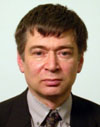
Larry Goodyer
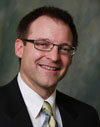
Jeff Goad
Anecdotally, the provision of travel medicine and other vaccination services by pharmacists is gathering momentum, particularly in Canada, the UK, and the USA, with other countries also expected to be developing pharmacy provision in this sector. It is also believed that there is a wide range of levels of provision, legal frameworks and standards under which these pharmacy services are provided in various countries and regions. Members of the group will have received the questionnaire to complete and we would encourage them to do so, as well as to help us identify other pharmacists who are not currently ISTM members and involved in any form of travel medicine services.
We will be providing regular updates of the activities of the group in future NewsShare editions including details of our other projects and events being planned for CISTM12 in Boston.
Both the Interim Chair and Vice Chair of the group would be pleased to hear from any pharmacists interested in participating in our activities.
Larry Goodyer, Interim Chair
Jeff Goad, Interim Vice-Chair
Nurse Professional Group (NPG)

Jane Chiodini

Sandra Grieve
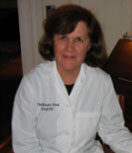
Gail Rosselot
The ISTM Nurse Professional Group (NPG) continues to evolve.
The current Council members would like to invite nurses interested in travel health to consider joining the NPG. Our members practice in countries all over the world. We network with each other and share ideas and expertise to benefit us all.
There is no additional fee or responsibility for ISTM members who want to join the NPG. But the more you get involved, the more you and the group will benefit. Information is shared on our NPG page of the ISTM website.
On our website, you will see our new feature "Nursing in Travel Medicine," which highlights nurses from around the world and their practices. The website contains a document called "Guidance Towards Best Practice in Travel Medicine" that is produced by NPG members. In the future we hope to add to the information contained on the NPG dedicated site.
A recent survey of NPG members sought views on how NPG could best support nurses involved in travel health practice. Early results demonstrated a high interest in increasing the opportunities to network, sharing best practice, developing continuing educational activities, and learning about how travel health is practiced in various countries. The results of the survey will be analysed and used to identify future projects and programmes to help the ISTM NPG become more useful and supportive to members. Survey results will be posted on the website and possibly shared during CISTM12 in May 2011 in Boston.
The NPG is planning a nurses' welcome reception for all ISTM nurse members during CISTM12. Please watch the ISTM website for further information.
If there is anything we can help with please contact:
Jane Chiodini (UK): janechiodini@btinternet.com
Sandra Grieve (UK): awcg1@btinternet.com
Gail Rosselot (USA): garosselot@aol.com
Florence Nightingale Centenary
The United Kingdom (UK). On 13 August 2010 the Royal College of Nursing (RCN UK) paid tribute to the legacy of Florence Nightingale. This year marks the Centenary of her death. International Nurses Day is held annually on her birthday, 12 May, when nurses around the world remember her contribution to the founding of modern-day nursing.
Janet Davies, RCN Executive Director of Nursing and Service Delivery, said:
"A hundred years after the death of Florence Nightingale, healthcare systems have changed, and many of the technical aspects of nursing have advanced considerably. But one thing has stayed the same -- patients looking to nurses to be caring, compassionate and reassuring. The difference Florence Nightingale made to nursing continues to be relevant to everyone who wants to do the best for their patients, whether they are in the community, an intensive care ward, or a field hospital. As nursing changes and meets new challenges, Florence's work on hygiene, evidence and the value of care will maintain her legacy -- she showed the world why caring matters."
The RCN Library in London is currently hosting an exhibition for RCN members. An original Crimean War lamp, letters written by Florence, and a Victorian glass mercury thermometer are among the items on display until October.
The Florence Nightingale Museum is located at St. Thomas' Hospital in central London, where Florence founded the Nightingale Training School for nurses. The museum has been extensively refurbished and tells the story of her life. It is open to the public seven days a week. There is a resource centre open by appointment to students, academics and other researchers who may utilise the museum's collections, books and documents. Another famous nurse from the Crimean War, Mary Seacole, is also featured.
Florence was a traveller and a nurse --what advice would give her today and what she would make of nurses working in the field of travel health? For further information about the exhibit, please go to www.florence-nightingale.co.uk/cms/.
Report from the Publications Committee

Charlie Ericsson
I want to thank the members of the Publications Committee (PC) for their hard work in reviewing the curriculum vitae and vision statements of six excellent candidates. The PC discussed the candidates in a lengthy conference call, ranked them, and presented the rankings to our President for his consideration. Our President then personally interviewed select candidates with probing and detailed questions including input from several on the PC. Once our President had made his decision, his choice was presented for approval to the Executive Board. I believe this process has served JTM very well.
While anyone will have trouble fully filling the large shoes of Robert Steffen, Eric will certainly do well. In fact, all of the candidates were extremely solid and worked hard to present comprehensive and detailed candidacies. JTM would have been well served by any of them. It was truly a tough job for the PC members to create a ranking and for Alan Magill to make his final decision, but the process was made easier by our knowing that whatever final decision was made, JTM would be the winner. It is my fervent hope that all of the candidates will remain engaged with JTM in whatever capacity they choose, continue to accrue publishing experience, and remain viable candidates for editorial positions as they open up in the future.
The PC is pleased to announce that ISTM will continue its warm relationship with Wiley Blackwell as our publisher of JTM. Another detailed, comprehensive and transparent process was spearheaded by our secretary/treasurer David Freedman. The contract was reviewed and negotiated and both the publisher and ISTM are now well positioned to move JTM forward in today's uncertain publishing world.
JTM's impact factor, as announced earlier, has risen again. In his usual diplomatic and humble fashion, Editor-in-Chief Robert Steffen wishes to give credit to the many authors who have contributed such excellent work that can be quoted widely. Of course, he is right, but we all should acknowledge the strong work of Robert himself and his very able assistant Gaby.
Finally, I would like to acknowledge the strong work of our new Executive Director, Diane Nickolson. She has been a huge help in organizing and implementing the processes of choosing a new Editor-in-Chief and in renewing our publisher's contract. She has even helped with the laborious task of creating written updates for the Executive Board. Kudos Diane!
Respectfully submitted,
Charlie Ericsson
Chair, Publications Committee
Scientific Program Committee: CISTM12 Call for Abstracts
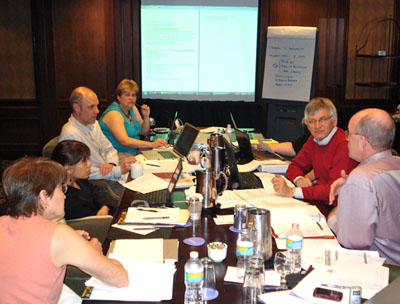
Program Planning Meeting, May 2010 in Boston, MA, USA
Left side of table, from bottom to top:
Mary Wilson, United States of America
Chris Greenaway, Canada
Leo Visser, The Netherlands
Brenda Bagwell, ISTM Secretariat
Right side of table, from bottom to top:
Alan Magill, United States of America
Christoph Hatz, Switzerland
On behalf of the Scientific Program Committee for the 12th Meeting of the International Society of Travel Medicine (CISTM12) to be held in Boston, Massachusetts, USA 8-12 May, 2011, it is our pleasure to inform you about the opportunity to present your original research in one of the free communication sessions or in a poster session. As we plan to increase the number of free communications presented orally, we are looking for original contributions that show the excellent work and research in travel medicine science. These sessions will provide an opportunity to hear from a new generation of travel medicine practitioners and researchers and to cover areas that may not be included in the plenaries, symposia, and workshops with invited speakers.
We are aware that the deadline (16 January 2011) seems far ahead of us, but we would like to encourage you to begin thinking about submitting an abstract to this special meeting. This meeting will mark the 20th anniversary of our society. Please contact me with questions at any time at christoph.hatz@unibas.ch. We look forward to many innovative contributions!
Sincerely yours,
Christoph Hatz, Mary Wilson, Leo Visser and Chris Greenaway
For the CISTM12 Scientific Program Committee
ISTM Certificate of Knowledge®

Ken Dardick
Developed by an international panel of travel medicine experts representing a variety of professional disciplines, the Certificate is a symbol of achievement in the field -- proof of commitment to excellence. Those passing the examination receive a Certificate of Knowledge and are granted a "Certificate in Travel HealthTM or "CTH®." ISTM members who receive the Certificate are also recognized in the ISTM Directory of Travel Medicine Providers and within the Travel Clinic section of the ISTM website.
The 2010 Certificate in Travel HealthTM exam was given to 203 candidates on 8 March 2010 in conjunction with the ISTM Regional Meeting in Miami, Florida, USA. Due to the size of the examination room, the attendance was limited, unfortunately not allowing all interested candidates the opportunity to sit for the exam. Ken Dardick, Chair of the ISTM Examination Committee served as Head Proctor, and there were five volunteer proctors, Paul Arguin, David Freedman, Kunjana Mavunda, Susanne Rossmuller, and Denise Thibault. ISTM extends great appreciation to these volunteers who so generously contributed their time to the process.
The 2011 ISTM Certificate of Knowledge Exam will take place on Sunday, 8 May 2011 in Boston, Massachusetts, USA just prior to the opening of CISTM12. Registration for the 2011 Exam will open on 1 December 2010. Please watch the ISTM website for the latest information about the exam, and register early.
Expert Opinions in Travel Medicine
Are you familiar with the ISTM's Our Expert Opinion in Travel Medicine series?
The Professional and Education Committee (PEC) of ISTM has developed an initiative entitled "Expert Opinion" as an educational vignette. New scenarios and opinions are presented quarterly.
Expert Opinion presents a pre- or post-travel quandary that is answered by an invited ISTM member with expertise in the topic discussed. The international membership includes varied clinical approaches, and the expert is offering only an opinion on a particular subject and should not be taken as a directive for all patients or cases. The PEC encourages ISTM members to discuss additional aspects relating to the scenario on the TravelMed Listserv. The cases and expert opinions are retained on the website (www.ISTM.org) so that visitors have the ability to review previous scenarios.
2010
- Case 1 (Hilary Simons, United Kingdom) - Spacing of live vaccines in a traveller to Ghana
- Case 2 (David O. Freedman, United States of America) - Travel advice for a trip to Southern Africa
2009
- Case 1 (Frank Bia, United States of America) - Follow-up positive TB skin tests
- Case 2 (Joel E. Gallant, United States of America) - Occupational exposure to HIV
2008
- Case 1 (Philippe Gautret, France) - Rabies post-exposure case from China
- Case 2 (Buddha Basnyat, Nepal) - Enteric fever in a Danish expatriate to Nepal
- Case 3 (Karin Leder, Australia) - Influenza in travellers
2007
- Case 1 (Eli Schwartz, Israel) - Evaluating schistosomiasis in travelers
- Case 2 (Elizabeth D. Barnett, United States of America) - Yellow fever vaccination for Senegal
2006
- Case 1 (Alan J. Magill, United States of America) - Prepare woman with hypertension for travel to altitude
- Case 2 (Will Cave, United Kingdom) - Preparation of a traveler for possible traveler's diarrhea
- Case 3 (David R. Shlim, United States of America) - Evaluating the risk of acquiring JE for a traveller to India
- Case 4 (Gail Rosselot, United States of America) - Quality management in the travel clinic
Results of our most recent ISTM survey: Does your travel medicine practice provide pre- and post-travel care for infants and children?
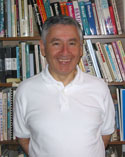
Karl Neumann
- Does your travel practice provide pre-travel counseling, immunizations, and medications for infants and young children?
- Do you provide post-travel services for these ages?
- Do you have age limits under which you do not see children? What are your age limits?
- Who sees the "too-young" children? Do you send the entire family elsewhere or just the children?
- Should ISTM institute programs to help you with pediatric issues?
- Are you a pediatrician? Do you see adults?
We divided the responses into two categories:
- Specific answers to the questions.
- Additional comments made by the responders. As with past surveys, these comments are often more interesting than the specific answers.
First the results of the survey:
- Travel medicine practitioners -- the vast majority of whom are trained in adult medicine -- vary greatly in their keenness to provide pre-travel counseling, immunizations and medications for infants and young children.
- Virtually all responders said "yes" to the question regarding seeing infants and children in their practices. (Perhaps practitioners who do not see infants/children were less likely to answer the survey.)
- About half of the responders who are not pediatricians have lower age cut-offs under which they do not see children/infants. This age varies from one to twenty one -- with almost every age in between mentioned at least once. One practitioner sees infants as young as six months.
- Some practitioners vary the cut-off age by the complexity of the contemplated trip. Many do not provide care to children/infants who need malaria prophylaxis or the more "exotic" injections (Japanese encephalitis and yellow fever, for example).
- Only about ten percent of responders see infants/children who return home ill. Many practitioners maintain close ties with pediatricians, with one often on the staff of the facility.
- All but three responders answered "yes" to the question, "Should ISTM institute programs to help with pediatric issues?" Suggestions were: pages on the ISTM website, lectures at ISTM meetings, ISTM assistance in organizing local meetings in different countries, pediatric travel medicine experts to answer telephone questions, and an ISTM pediatric listserv. One respondent was "undecided" and one felt that there was sufficient information on pediatrics now available.
- A dozen responders identified themselves as pediatricians. All but one sees adult patients for routine travel services.
- Many of the practitioners, especially ones who identified themselves as infectious disease specialists, said they have had some pediatric training and therefore feel qualified to see travelers of all ages.
- (One clinician sees travelers "from the cradle to the grave," perhaps a poor choice of words. Hopefully he or she sees many more of the former than the latter.)
Here are some of the comments. (In some cases comments have been edited for clarity or space considerations, or combined due to similarity.)
- "... Parents are becoming more reckless and are choosing ever more dangerous and unhealthy destinations for family travel. It used to be that only missionaries chose such places. Have other travel medicine practitioners found this trend to be true? Are there any guidelines for traveling with children? Should we discourage parents who plan unwise trips?"
- "I am sure you will see a strong divide in opinions in various countries. In Australia most travel medicine Drs will come from a General Practice (Family Practice) background and so as a matter of course see everyone with no lower age limit, and offer a full service to all. However children are not just mini adults and I'm sure many members would appreciate some expert opinion type work on the pediatric population, as some are more comfortable than others in dealing with them."
- "Referring infants and children back to their pediatricians for immunizations and preventative medications is generally unsatisfactory. The pediatricians in our area know less about travel-related immunizations and medications that we. Therefore we see very young children -- even though we are not always comfortable in doing so. "
- "Only pediatricians trained in infectious diseases seem to be familiar with travel-related issues."
- "We are mainly an adult travel clinic. We encourage families by having a play area for the children so that parents can concentrate on what we are telling them. We will provide one of our assistants to watch the children, when necessary."
- "In New Zealand (NZ) most pre-travel advice, both within standalone travel medicine clinics and elsewhere, are provided in primary health care by general practitioners/family physicians and primary health care nurses. Because primary health care providers in NZ commonly care for all ages of children, extending care for this group to include pre- and post-travel services comes quite naturally. GPs who have little experience in travel medicine often do refer children to our travel medicine clinic, especially if there are questions around malaria chemoprophylaxis. We have also fielded the odd call from local pediatricians, as they see us as the travel medicine experts... Yes, I do believe the ISTM has a role to set guidelines/discuss issues pertinent to the pediatric traveller."
- "We send young children to a pediatric hospital 2 ½ hour drive from here."
- "If we feel that we cannot adequately see the children, we send the entire family to a facility that sees both children and adults. "
- "Our corporate medical office travel/clinic is seeing more families going overseas. Until now, we have been referring the children to a pediatric hospital facility. We are now considering seeing children in our clinic. But we are concerned about malpractice issues. None of our staff has had formal training in pediatrics though we believe we are competent in the field of pediatric travel medicine. ... Our corporation's lawyers wonder if seeing only an occasional child is legally hazardous."
- "We see many families who are planning to visit friends and relatives in the country where the parents were born, usually a developing country. These people generally have limited funds. Often they want their children vaccinated but not themselves. So we assume that the parents have had typhoid and hepatitis A because of where they grew up -- not ideal, but financially essential."
- "Seeing families presents a financial burden on our part-time travel medicine office. The fees can be astronomical. So we charge only one office visit for the family."
- "Immunizations that were once travel-related, hepatitis A and meningitis, for example, are now routinely given to all children."
- "Our travel clinic does pre- and post-travel services for all ages. I am boarded in pediatric, but have done general practice for 35 years, have worked on five continents, been in the military, and worked on many sea-going ships. I have been an early member of ISTM and appreciate the utility and value of the listserve."
- "We work with pediatricians to provide as many of the immunizations for travel as possible except for typhoid, yellow fever, rabies, and Japanese Encephalitis. We fax travel preparation info to the pediatrician and info about malaria and TD based on destination. Because the pediatrician will be taking care of the child after the trip, he/she needs to be on board and aware of what is involved. Pediatricians have the permanent record, know the child and parent, and take whatever insurance is available for that child. For state-funded medical care, we can reduce the cost to the patient if we equip the pediatrician to provide necessary medications and vaccines (except for the ones listed above). The parents are then more likely to come see us for what remains and is not covered by insurance. By doing this, we also establish a relationship with the pediatrician for questions and possible referrals to our ID section. "
- "We are a family practice which has offered travel medicine services/vaccines for 15 years. We try very hard to dissuade families with infants who have not been fully immunized from traveling to high risk countries."
- "I am a paediatrician, infectiologist, specialist in high altitude medicine, mountain guide, and work in a fetal medicine unit. I am not officially in travel medicine. But many doctors or parents contact me directly for this kind of advice."
- "I am an RN. I have a (pediatrician) medical director who practices off-site. I have standing orders for all vaccines for adults over 18years of age. I consult as necessary. However, I also provide travel consultation and immunizations to infants and young children."
- "As an adult practice nurse for 10 years then a pediatric nurse for nearly 25 more years prior to travel nursing, I understand the differences between adult and pediatric issues and it has served me well to date. Parents are appreciative of all the information to keep the kiddies healthy... "
- "We advise parents of very young children to see a paediatrician/infectious disease specialist."
- "We also have 4 double-boarded pediatricians/internists in our group that do travel visits."
- "Usually children are well vaccinated and do not need more than yellow fever, typhoid and malaria prophylaxis if indicated and rabies and possibly JE if they are relocating. We also spend a lot of time talking about non-vaccine preventable issues and answering a lot of questions that the parents have. Of course, all vaccines are given as strictly age-appropriate. If any vaccines can be given by the pediatrician such as Hepatitis A, meningitis, etc., we are happy to send the patient back to the pediatrician if the parents so wish. Our counseling, however, we feel is invaluable, and something that the pediatrician may not have the specific knowledge of the area nor the time to do. This applies specifically in the case of relocation. We also find that VFR's, while hesitant to vaccinate themselves and take malaria medication, are always quick to do so for their children. This is a good time to stress to the parents the risk that they will be exposed to as well."
- "We do not do follow-up treatment as we are a pre-travel clinic only, and refer anyone who returns with symptoms or issues of any type to an infectious disease specialist. I am happy to say that rarely happens. A well informed and prepared traveler seems to have fewer issues."
- "Our clinic is inside a public tertiary level hospital and we provide counseling also for medications and immunizations. For vaccines we send all our patients to the immunizations public service of our town."
- "I am an MD and DTM&H and I work in a microbiology lab. We see children and adults and if we need we can ask for some help to the pediatricians or the infectious diseases colleagues of our hospital. Sometime we provide counseling to pediatricians or general practitioners of the public service outside the hospital."
- "We are one of the largest travel clinics in the US. We are paired with the infectious disease department and our medical director is board certified tropical med/ID. We have 7 RN's who do all the pre-travel consultations and 5 ID docs who see post-travel illness. They will not see sick kids after travel due to their licensure as adult medicine providers but they will do a family pre-travel consult if necessary though they prefer the RN's to do that. We refer sick kids (under 18) to pediatrics or family practice."
- "Our travel practice is small but growing. We do not see children in our regular business so we cannot see children for travel. Also, one of our doctors believes that children are excluded from her malpractice. We have actually vaccinated some older children, but not the doctor with limited coverage."
ISTM Pediatric Interest Group

Karl Neumann
You need not be a pediatrician to join our group. There are no extra dues. There is no work unless you volunteer to do it. All you need is interests in travel, medicine, and infants and children.
Pediatrics is an integral part of travel medicine. All travel medicine practitioners, regardless of their primary specialty and areas of interest, are frequently confronted with pediatric-related issues. Many, perhaps most, travel health practitioners see children in their office as part of families going overseas. Parents are increasingly taking their children on work assignments in remote areas of the world or on pleasure trips to high altitude destinations and safaris, and teenagers travel by themselves or in groups to developing countries to do community work, for example.
A large body of pediatric-oriented travel health information has come into existence, much of it from non-traditional travel medicine sources and the data is often not available in the travel medicine literature. These sources include international health, overseas adoptions, and vaccination projects in developing countries, to mention just a few. Some pediatricians in the forefront of such programs are members of the ISTM.
Our goal is to have pediatric-oriented sessions at ISTM conferences, organize lists of pediatric travel information resources that can be linked to our webpage and lists of newly published articles relevant to pediatric travel medicine -- (this job would require more regular updating). By having two people for each of these tasks, we should be able to ensure collaboration and cross-fertilization over geographic borders.
For more information in joining our group, please contact Karl at travhealth@AOL.com
Karl Neumann
Interim Chair
The Way it Was: Travel in the 19th Century

At the same time, alcohol is a valuable medicine and should not be excluded from the traveler's repertory. For an expedition not likely to last for more than a year the following amount will be found to be sufficient: Two dozen of good champagne, three bottles of sherry, four bottles of brandy, and four of whisky. Claret, burgundy, and port travel badly, although as tonics and blood making wines they are among the best...
Except under the best circumstances, such as accidents or deadly faintness, alcohol should never be taken in the daytime but reserved for the evening. And if the want of alcohol is felt it should preferably be taken in the form of champagne, or brandy, or whiskey and water. The practice of so many German travelers of taking small quantities of neat brandy or other spirits in Africa is most deleterious, and if pursued for any length of time, will inevitably prove fatal.
Take a Spare Truss: Tips for Nineteenth Century Travelers, Compiled by Simon Brett. Elm Tree Books, London
